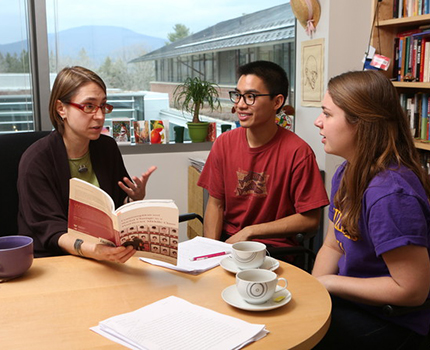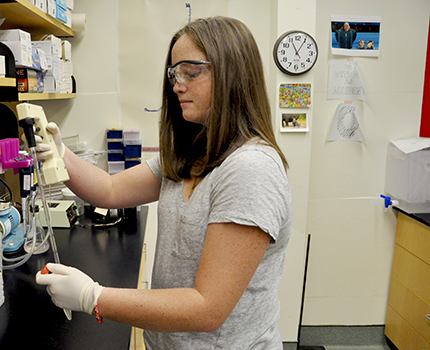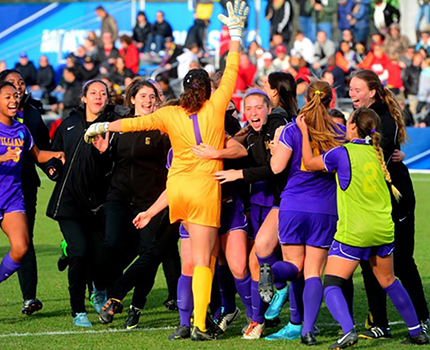Charitable Remainder Unitrust
A charitable remainder unitrust can help you maintain or increase your income while making a significant gift to Williams College.
If your unitrust grows, your payments will grow too, providing a hedge against inflation. A unitrust provides more flexibility than other life income plans.
A charitable remainder unitrust could be right for you if:
- You want to provide income for yourself or others.
- You want the possibility of income growth.
- You want to save income taxes or capital gains taxes.
- You want to choose the person who administers your gift and guides its investments.
- You want to make a generous gift to Williams.
- You are considering a gift amount of $100,000 or more.
Williams will serve as trustee of a charitable remainder unitrust (CRUT) within the guidelines listed below. Williams does not currently charge any expenses or fees against CRUTs, nor does it charge a trustee fee. Williams can provide a sample trust document for you to share with your attorney to aid in the drafting process.
- Williams is the sole, irrevocably designated charitable remainder beneficiary.
- For a beneficiary age 60 and older, lifetime trust is available; term-of-years CRUTs (up to 20 years) are available for a beneficiary of any age.
- The CRUT payout rate is between 5 and 6.5 percent and the donor’s charitable tax deduction upon funding the trust is equal to at least 30 percent of the trust funding value.
- The CRUT is governed by the laws of the Commonwealth of Massachusetts.
- Proposed funding assets are reviewed and approved by Williams.
CRUT Investment Information
Williams strives to offer the best investment strategies for its trust assets and presently offers three investment models for CRUTs: the Index Fund Model, ESG Fund Model and the Endowment Model:
- Index Fund Model ($100,000 gift minimum):
The stock and bond investments are almost exclusively index funds, which are designed to match the components of a specific financial market index, such as the Standard & Poor's 500 or the MSCI Emerging Markets. They aim to provide broad market exposure, low operating expenses, and low portfolio turnover.
- ESG (Environmental, Social and Governance) Fund Model ($100,000 gift minimum):
This model invests in low-cost mutual funds that have been selected to prioritize investment in companies with positive environmental, social and governance records and to exclude companies with poor records across these criteria. While most of these funds apply express ESG screens, the College reserves the right to include funds that do not. The current portfolio includes three such funds because they provide important diversification benefits.
- Endowment Model (minimum gift $250,000):
Some Williams CRUTs may share in the returns earned by the Williams endowment. CRUTs can hold accounting “units” in the endowment and thus have a contractual right to receive payouts based on the value of the units. While these CRUTs participate in the returns earned by the endowment, they have no ownership interest whatsoever in the underlying investment assets of the endowment. Endowment investment policies are predicated solely on the College’s long-term interests.
For both Index and ESG Fund Model investments, the college offers various asset allocations, the most common being: Growth (71% stock/29% bond). The asset allocation models are actively managed by TIAA Kaspick, and these trusts therefore incur modest investment management fees (currently 50 basis points). Individual trust portfolios are reviewed periodically, with consideration paid to each income beneficiaries’ needs and the tax character of the payments.
For more more details on investment options, please call the Office of Gift Planning at (413) 597-3538 or (877) 374-7526 or e-mail us at gift.planning@williams.edu.
Separate trust
A charitable remainder unitrust is a tax-exempt trust governed by a trust agreement. You choose the trustee who is responsible for administering the unitrust and guiding the investment of its assets.
Irrevocable gift
A charitable remainder unitrust is an irrevocable arrangement. Once you transfer assets to the trust, you cannot change your mind and get the assets back. This requirement assures that whatever value remains in your unitrust when it ends will go to support Williams.
Payments vary with value of unitrust
Each year, your unitrust will distribute a fixed percentage of its current value, as revalued annually. If your unitrust's value goes up from one year to the next, its payments will increase proportionally. Likewise, if your unitrust's value goes down, its payments will also go down.
Remaining assets to Williams College
When your unitrust ends, all of its remaining principal will become available to support Williams.
You choose the payment percentage
You choose the percentage of your unitrust’s value that it must pay each year to its income beneficiaries. The payment percentage must be at least 5%. It may be to your advantage to choose a relatively low payment percentage so that your unitrust’s assets have the best chance to grow. If the value of your unitrust grows, so will its payments. A payment rate of 5% to 6% is typical. Payments are usually made in annual, semiannual, or quarterly installments.
Payment flexibility
You can include special payment provisions in your unitrust that make it a good way to give debt-free real estate or other illiquid assets that may take time to sell. In this situation, you can limit your unitrust's payments to its net income or its unitrust percentage, whichever is less. This way, your trustee can take the time necessary to sell your assets at a fair price. If your unitrust's net income is less than its unitrust percentage during this time, then it will distribute its net income only. This "net income" limitation can last for the entire term of your unitrust or just until a specific event occurs, such as the sale of your gift asset.
Who can receive payments?
You decide who will get the payments from your unitrust. Usually, this will be you, or you and your spouse. You can, however, select other people to receive the payments. For example, you may wish to provide income for parents, a sibling, or children.
How long do payments last?
While most unitrusts last for one or two lives, other terms are possible. A unitrust can last for more than two lives, for a specific length of time of up to 20 years, or for a combination of lives and years.
Tax benefits
- Earn an immediate income tax charitable deduction.
- Avoid capital gains tax.
- May reduce estate taxes and probate costs.
You will receive an income tax charitable deduction in the year of your gift. If you cannot use the entire deduction in the year of the gift, you may carry forward your unused deduction for up to five additional years. If you give appreciated securities to fund your unitrust, you will not pay any capital gains tax when you make your gift.
In addition, because a unitrust is a tax-exempt trust, it will not pay any capital gains tax when it sells these assets. This means that your trustee will be able to reinvest the full value of the assets you donate. By removing the gift assets from your estate, you may also reduce estate taxes if your estate exceeds the then applicable estate tax credit. You may also reduce probate costs when your estate is settled. The amount of these savings will depend on the size of your estate and on estate tax law in force at the time your estate is settled.
Taxation of payments
The taxation of unitrust payments depends on the trust’s past distributions and investment performance. Payments from a unitrust are typically taxed as ordinary income. If the trust is funded with appreciated assets, a portion of the payments could be taxed at lower capital gains tax rates in some years. It is even possible for a portion of the payments to be tax-free in years when there is not enough ordinary income and capital gain income to make the payments.
Add funds anytime
You can make additional gifts to your unitrust anytime. Additions earn an additional income tax charitable deduction that may save you income taxes if you itemize your deductions. You will also increase future payments without the effort and expense of creating a new unitrust.
Assets to consider giving
The following assets make excellent sources for funding your charitable remainder unitrust:
- Cash that you currently have in a savings account, bank CD, money-market fund, or other safe but low-yielding investment.
- Securities, especially highly-appreciated securities.
It is also possible to create a unitrust using real estate that is debt-free or other illiquid assets that may take time to sell.
Example
Audrey Chen is 76 years old and her husband John is 75. Many of the stocks in their portfolio have appreciated substantially in value over the many years the Chens have owned them. They are enthusiastic about making a major gift to support Williams College, but they also would welcome a way to receive greater income from their investments without paying a big capital gains tax.
After consulting with their advisor, the Chens find that a 5% charitable remainder unitrust funded with $500,000 in assets will meet their needs perfectly. They fund their unitrust with $400,000 in stocks plus $100,000 from a money market fund. They paid a total of $75,000 for the stocks, which currently produce about 2% in dividends each year. Their money market fund has been earning about 2% interest annually.
Benefits
- The Chens will receive $25,000 in payments in the first year of their unitrust, significantly increasing the income they had been receiving from these assets. If the income and appreciation of the trust's investments, net of costs and fees, total 7% annually, their payments will grow to over $33,647/year* in 16 years.
- The Chens will receive an immediate income tax charitable deduction of about $240,355**.
- The Chens' trustee will be able to sell their stock immediately in order to diversify their unitrust's investments without paying any capital gains tax.
- Assuming its investments earn a 7% net annual return on the unitrust's investments, over $686,393* will be left in the Chens' unitrust to support Williams College when their unitrust terminates.
*The future payment amounts and principal amount remaining for Williams College will be lower if the Chens' unitrust earns less than 7% annually.
**The Chens' income tax charitable deduction will vary slightly depending on the timing of their gift.
How Your Gift Helps
Your gifts to Williams College help us provide the finest possible liberal arts education by nurturing in students the academic and civic virtues, and their related traits of character. It will provide Williams with the resources to provide...
 |  |  |
| an incredibly low student-faculty ratio. | tutorials and summer research opportunities. | world-class arts and phenomenal athletics. |
Megamenu Social